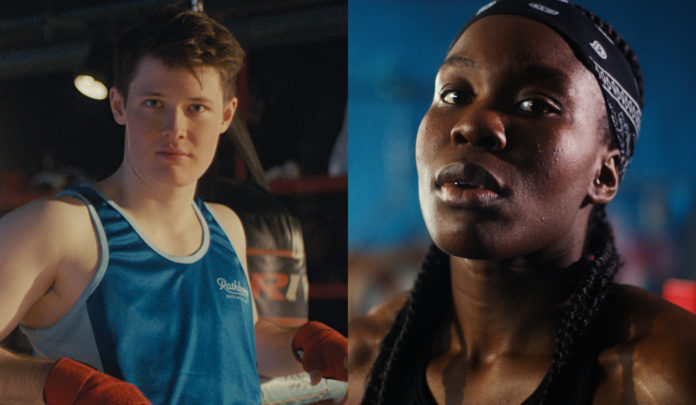
For Oriance, representation within the sports scene is vital to engage and spotlight the next generation of sportspeople. “I didn’t know any people who are openly gay so it was always a part of me that I’d kept to myself,” she says. “But in boxing, I’ve met so many different people from so many different backgrounds.” The East London boxer hopes for her personal and sporting identity to co-exist without being tokenised. “I want to be seen as a boxer, as an athlete,” Oriance tells GAY TIMES. “My sexual orientation, my gender, and my race have absolutely no bearing on my ability to compete or play in the sport. I want to be seen as an athlete.”
When Jill first started boxing, he hadn’t come out. Fearing he would lose the sporting community he had grown to love, Jill continued to attend female-only boxing classes. However, during the pandemic, he transitioned and sought out a trans-friendly gym. Now, the trans boxer is passionate about inclusivity and LGBTQ+ safe spaces in sport. Currently, 80% of trans people have witnessed or experienced transphobia in sports, according to Equality Network data. For him, boxing has served as a constructive outlet to challenge himself. Jill joined lessons at Rathbone Boxing Club, Soho, shortly after transitioning. From a young age, the boxer fondly recalls being shuttled to and from training activities. “At some point in high school I was playing five sports competitively, so you can figure how important they were to me,” the boxer explains. Jill considered the undertaking of sport a crucial asset to his upbringing.
As an avid boxer, Jill uses his perspective in the LGBTQ+ sporting community to tackle ongoing homophobia and transphobia in traditional sports spaces. However, as the boxer insists, his identity-defining labels do not impact his ability to succeed and enjoy sports. “As the Olympic Charter puts it: “The practice of sport is a human right.” Instead, Jill believes everyone should be able to get involved in the benefits of sports. This unequivocal faith stems further than his personal input, but stands as a broader mood to the sport, particularly when it comes to younger people. “I can’t imagine what it would have been like to be banned from competing because of something I have no control over, like so many kids in hostile states of the US right now,” Jill reflects. Data collected from an Out on The Fields study revealed that 70% of people believe youth sports is not a safe space for LGBTQ+ people.








